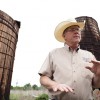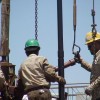Background
The Railroad Commission of Texas (RRC) is the state agency that regulates the oil and gas industry, natural gas utilities, pipeline safety, the natural gas and hazardous liquid pipeline industry and surface coal and uranium mining in Texas. The commission is also responsible for research and education to promote the use of liquefied petroleum gas as an alternative fuel. It is the oldest regulatory agency in the state and one of the oldest of its kind in the nation.
The Texas Legislature established the commission in 1891 to regulate the booming railroad industry. The commission began to regulate oil production in the early 20th century as the industry started to boom in Texas. By the mid-1930s, Texas flooded world markets with so much oil that its price plummeted globally, prompting the federal government to impose limits on production at each well, a responsibility granted to the Railroad Commission in Texas.
The commission had exceptionally strong influence over world oil prices from the 1930s through the 1960s but was displaced by OPEC (Organization of Petroleum Exporting Companies) after 1973. In 1984, the federal government assumed regulation of railroads, trucking and buses, but the Railroad Commission kept its name. The RCC commission an annual budget of $79 million and focuses entirely on oil, gas, mining, propane and pipelines, setting monthly production quotas.
In 2013, a bill to reform the agency and update its name failed to pass the Texas legislature.
In 2012, Republican Barry Smitherman widely won re-election to the commission and serves as chairman. Republicans Christi Craddick and David Porter also serve as commissioners.
In June 2014, the RRC drew concern over its media and transparency policy after revelations that the agency’s executive director had prohibited media interviews of staff.
In the last three years, the commission has issued more oil and gas drilling permits than in any three year period since the 1980’s.
Railroad Commissioners are elected to six-year terms, with one Commissioner seeking election every two years. The three-member commission was appointed by the governor until an amendment to the state’s constitution in 1894 established the commissioners as elected officials serving overlapping terms. No specific seat is designated as Chairman. The Commissioners decide who will serve as Chairman.
Click here for a history of the Railroad Commission of Texas.









